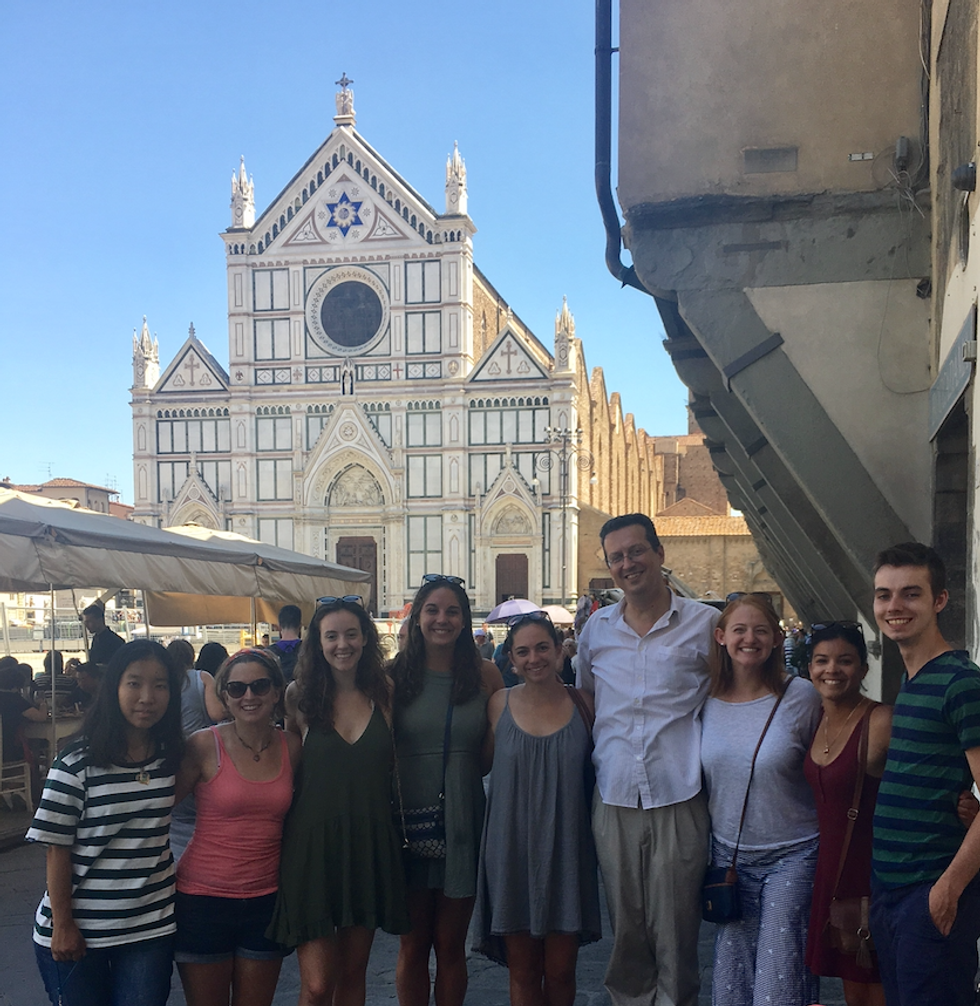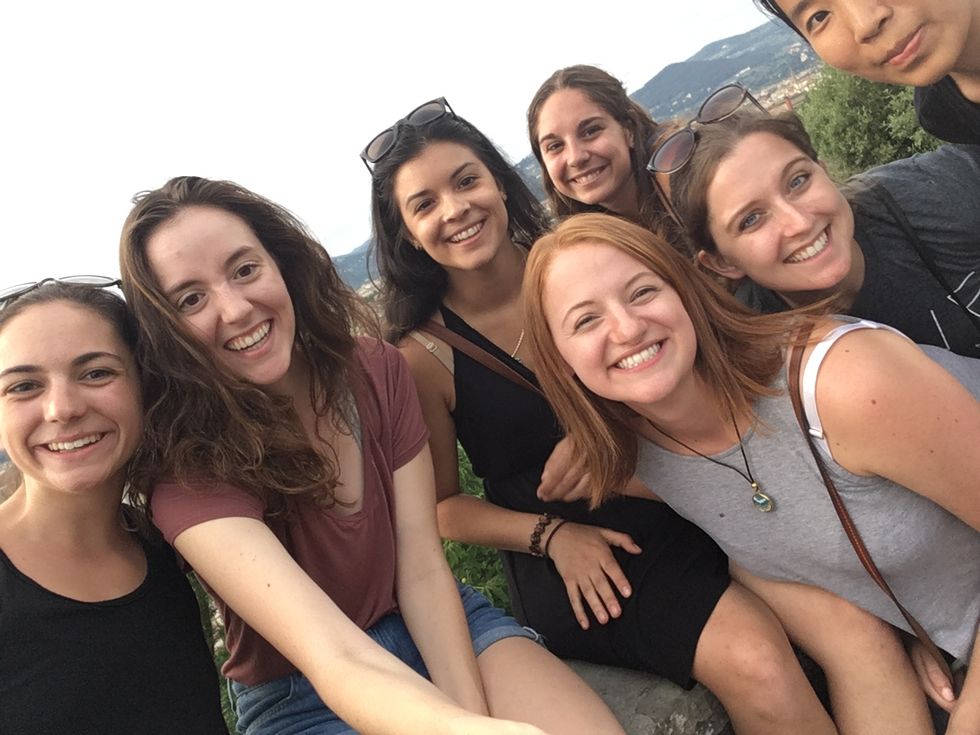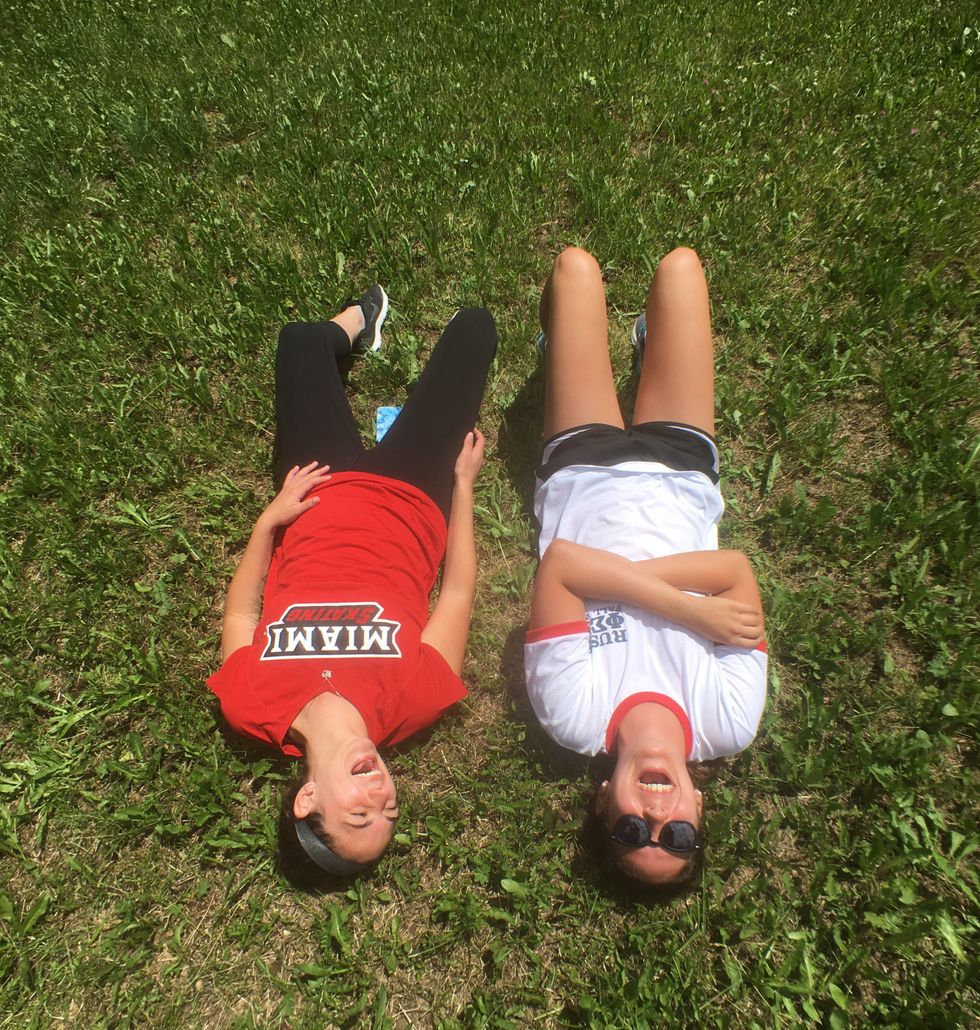It's 1 a.m. on my second day in Florence. After getting completely lost trying to make my way back to my apartment, I stumble upon my street, Via della Conce. Pulling out my six-inch metal sticks, the things Italians refer to as keys, I begin to open the door to the building of my home for the next five weeks. The lock refuses to budge. Rather than letting panic set in, I take a moment to gather myself. Twenty minutes pass as I try to jiggle the key in the lock, attempting to find the right angle and torque of the key.
Coming to Italy, the only Italian words I knew were "ciao" and "grazie." People who are close to me know that I hate tomatoes with a burning passion, yet tomatoes are in 80 percent of the food in Italy. The longest I have ever voluntarily gone without skating was three weeks, yet I agreed to go somewhere that does not have an ice rink for six weeks.
So there I was, standing outside my apartment building in the middle of the night, alone, frustrated and exhausted. I began to wonder what on Earth I was doing in Italy.
I would be lying if I said that studying abroad is an "easy" experience. Snapchat, Instagram and Facebook often tint experiences to seem "perfect." Social media highlight reels make it seem as though you go abroad, instantaneously meet your soulmates and have the time of your life with no setbacks or challenges. I'm not telling you this to steer you away from studying abroad. In fact, quite the contrary.
As the name suggests, there is a fair amount of studying involved with studying abroad. Taking six credits in a short amount of time involves spending a good portion of the day in class followed by a solid few hours of homework. But going to class while studying abroad is different. One day, class was held in the world's first art gallery, the Uffizi. Another day, our in-class assignment was to go to a café and write about what we saw. My peers and I learned a wide variety of material in our classes and even had fun doing so.
There are some things that simply cannot be taught in a classroom. I have learned more about myself throughout this experience than I would have ever thought was possible.
I learned that I am capable of a lot more than I think I am. On my first day in Florence, I spent two hours trying to find a grocery store that was ten minutes away only to buy lotion instead of body wash. On my second night I experienced a whole new level of problem-solving and independence. By the end of six weeks, I figured out how to navigate the city without the use of Google Maps, and I even helped direct tourists on numerous occasions.
I learned that reaching out of your comfort zone is rewarding. Coming to Italy was the first time I had traveled abroad by myself. By the end of six weeks, my friends and I traveled to seven different places across Italy on our own. We mastered every form of public transportation: car, boat, water taxi, bus, train, metro, and even cable cars. One weekend we hiked across two different cities. Another weekend we climbed two mountains. I tried food that I would never try in a million years. Some of the best things happened when I pushed myself to the very edge of my comfort zone. I was comfortable being uncomfortable. That is something that cannot be taught in the classroom.
I didn't know a single person in my study abroad program. The vast majority of us were a bunch of strangers, coexisting at school without knowingly crossing paths. But, a funny thing happens when you are traveling in a foreign country together. An inexplicable bond is formed when you spend each and every day with the same small group of people, figuring out together how to survive living in an entirely different culture. Two months ago, we had no idea that each other existed. Yet six weeks later, it felt like we had known each other for a lifetime. I feel so fortunate to be able to have shared this experience with some really incredible people.
I have learned how much I appreciate meaningful connections. In college, it feels like in every social setting, everyone is on their phone, talking to people who aren't there while ignoring the people in front of them. Being abroad eliminated the cell phone distraction. Not having WiFi or data made our cell phones useless and resulted in everyone being present. It was incredible. We had deep, meaningful, intellectual conversations. We learned about each other. We asked questions. We enjoyed each others' company, and that in itself was more than enough.
I learned to value impermanence and to live life to the fullest. Everything in life is so fleeting and comes and goes. But that does not make it less precious. In fact, it helps you live in the moment and even encourages you to appreciate the small things.
It is a privilege to travel and to experience life outside of the United States. Becoming immersed in a culture other than my own has been incredible. I am eternally grateful for the opportunity to have studied abroad, and to be able to share it with so many extraordinary people. My eyes have been opened to a world of possibility, diversity and knowledge that simply cannot be taught in a classroom.
On our last day of class, my professor shared this quote with us: "Studying abroad is more than the seeing of sights; it is a change that goes on, deep and permanent, in the ideas of living."




















